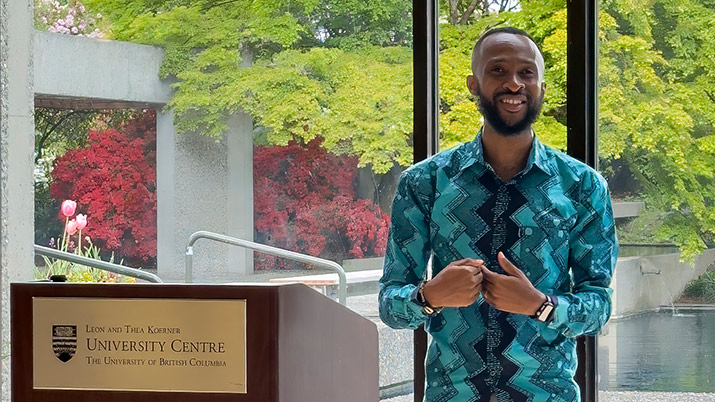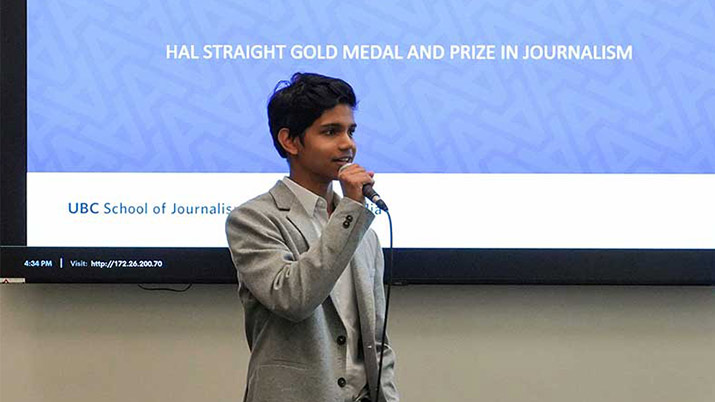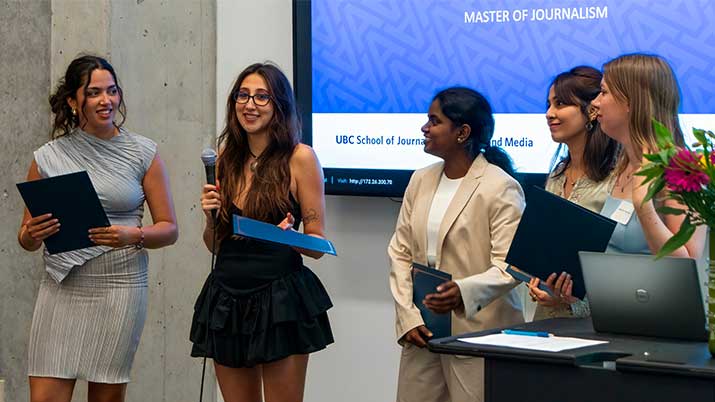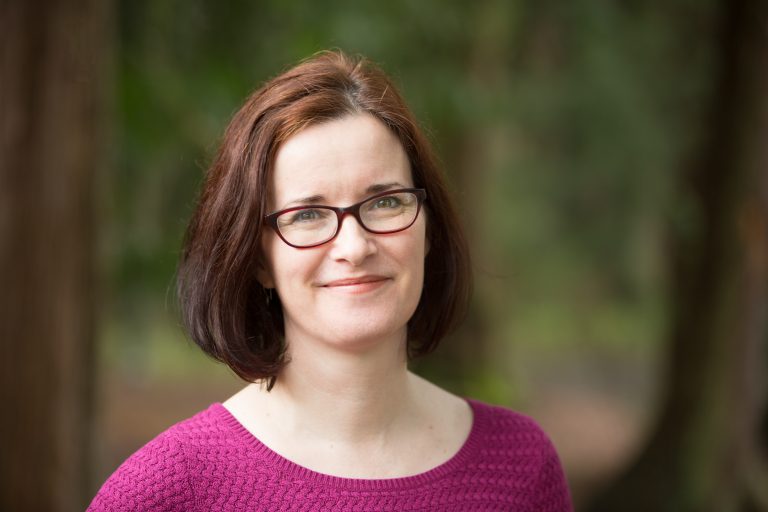

In February, The Tyee ran a three-part series by Sanders that dove into the troublesome labour practices and sexism in B.C.’s restaurant industry. The servers that Sanders interviewed spoke out over harassment, low wages and sexist dress codes that forced some female servers to wear high heels.
That last finding caught the eye of B.C. Green Party leader Andrew Weaver. In March, he introduced a bill in the legislature to amend footwear requirements. B.C. Premier Christy Clark quickly backed the motion.
“In some workplaces in B.C., women are still required to wear high heels on the job. This isn’t just old-fashioned; in 2017, it’s unacceptable,” Clark wrote on Facebook. “Government will take action to do exactly that.”
In recognition of her series, Sanders was awarded the school’s Rafe Mair Award for public service journalism. She also received the Hal Straight Gold Medal and Prize as the most outstanding graduate student of her graduating class.
“Rachel exemplifies so many of the journalism qualities we foster at the school — curiosity, critical thinking, and an eye towards reporting with impact,” said journalism professor Peter Klein, who chaired the awards committee.
“She noticed a problem that was in plain sight, and using rigorous reporting methods, she uncovered a story that has led to tangible change for people working in the food service industry. Journalists can work their whole careers without seeing their reporting lead to actual change, so it’s particularly gratifying to see such clear results grow directly out of her work at UBC and The Tyee.”
Digging deeper
Two years ago, Sanders felt stuck. As a freelance journalist, she had spent years covering arts and culture in Vancouver and producing stories for CBC Radio. But she wanted to pursue more ambitious projects.
“I didn’t know how to start digging deeply as a journalist,” Sanders said. “And I realized I had some gaps in my knowledge. I had learned a lot from doing journalism myself, but I didn’t have the educational foundation to do the kind of work I wanted to do.”
Sanders had recently started running Story Board, an online community for Canadian freelance journalists. It was then that she grew interested in precarious work.
“As a freelancer, I found a lot of benefits in this workplace instability. But I could see that changes weren’t good for everybody and I was interested in writing about that.”
Encouraged by a friend who graduated mid-career from UBC Journalism, Sanders decided to return to school.
Professor Kathryn Gretsinger said Sanders was “special from the moment she walked in here.”
“She’s an older student, she’s a serious student, she was a woman on a mission. She came in determined to make work and labour and employment her area of special interest.”
Back to basics
Sanders was the oldest student in her class, but she didn’t shy away from her peers. For one of her class projects, she paired up with one of the youngest students.
“I was inspired by the sense of purpose that a lot of my classmates had. A lot of these young journalists knew exactly what they wanted to do and how they were going to go about doing it.”
Even with her experience, Sanders said she benefited from going back to “ground zero” with her first-year assignments.
“I found it was either filling gaps in my knowledge or confirming to me that I really did know how to do these things. In that sense, it was a boost in my confidence, which is something I really needed,” she said.
“The instructors also met at the level I was at. They gave me a lot of really valuable mentorship that helped me get to the next stage in my career. The program really is whatever you make of it.”
Changing the law
In her second year, Sanders enrolled in the school’s feature writing class. She pitched a story about a study on restaurant work and minimum wage, but wasn’t sure how to turn it into a feature.
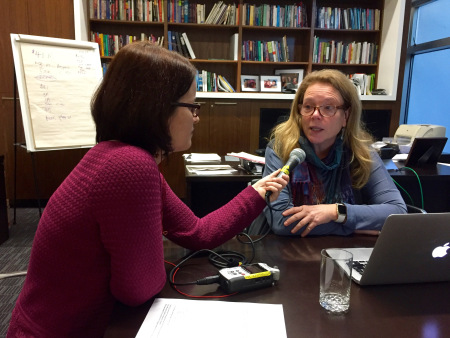

Sanders interviewed Acting Dean of Arts Kathryn Harrison for Arts on Air
Under the guidance of instructors David Beers and James MacKinnon, Sanders dug into B.C.’s restaurant industry and interviewed nine servers. She learned that the harassment and sexist practices faced by servers was an “open secret.”
“I wondered, is this really a story if everybody’s telling me it’s an open secret?” she said. “It turned out it might be an open secret to a certain demographic, but it came as a big surprise to people outside of that demographic.”
Sanders found that low server wages and a reliance on tips encourage a culture of harassment by customers that largely goes unreported. Conditions are made worse by some managers who enforce sexist dress codes and overlook the safety of servers.
The B.C. government zeroed in on the high-heel requirement for female servers.
“It was before an election campaign, so that helped,” Sanders noted. “Politicians who are wanting to make statements will leave a lasting impression on voters.”
“But I did not expect it to effect the kind of change that it did. That came as a stunning surprise.”
Life after grad
Another highlight of Sanders’ time at the school was co-hosting and producing Arts on Air. Along with j-school student Brittany Duggan, the two interviewed notable figures in UBC’s Faculty of Arts.
One of their feats: interviewing UBC president Santa Ono as he rushed to a meeting.
In light of her series on the restaurant industry, Sanders hopes to pursue more stories about labour, while continuing her arts coverage.
“There’s a lot of crossover,” she says. “Creative labour is one of the forms of labour that is most undervalued. There’s more to be done there.”
Coupled with school work, Sanders admits her time at the School of Journalism was tough. She had little free time while juggling family life, including two children.
“I sometimes felt like I was working all the time,” she said. “Friday night, as soon as the kids went to bed, I was back at my computer.”
But her hard work paid off. Sanders is admittedly sheepish about the recognition she received at graduation.
“I looked around and saw 33 classmates who also worked so hard over the last few years, and I saw the high-quality work that they produced,” she said. “I’d like to give a shout out to all of them, too.”
